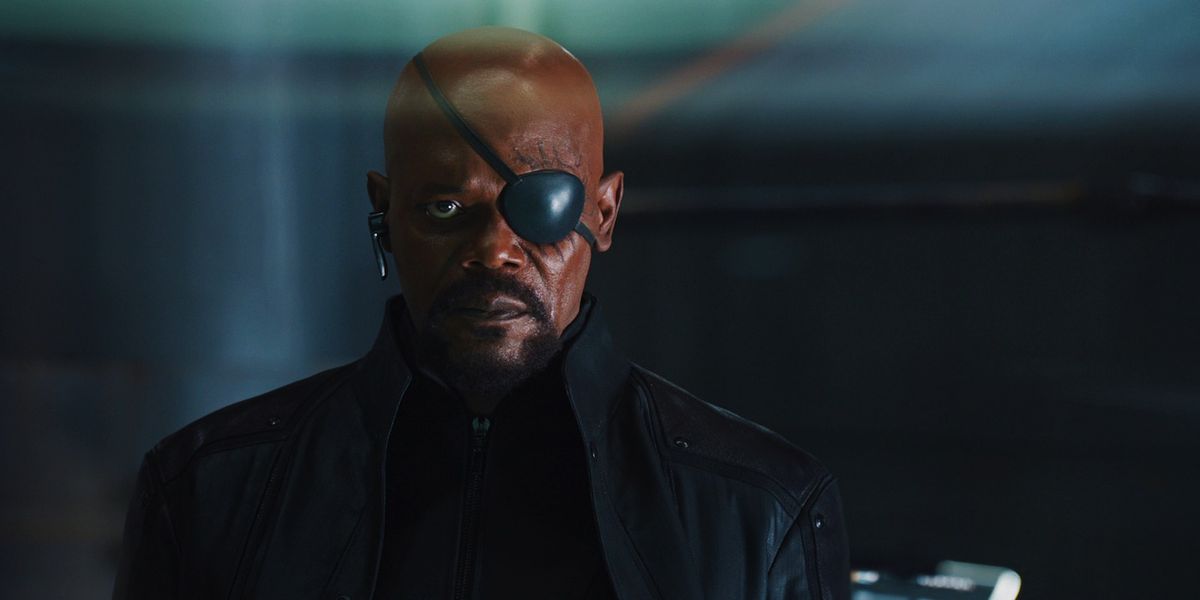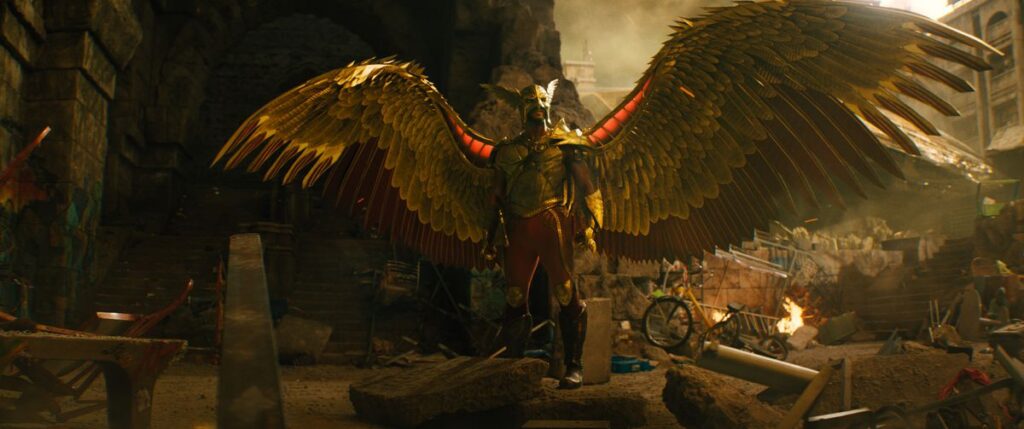James Gunn and Peter Safran will be co-rulers of Warner Bros.’ new DC Studios department, according to a Warner Bros. announcement on Tuesday. But in DC Studios’ sprawling cinematic universe, there’s apparently only one head honcho capable of directing the biggest superheroes on the planet.
According to the new movie Black Adam, James Gunn isn’t in charge of the DC film universe, but neither is Black Adam. Amanda Waller is. Amanda Waller, the woman who distrusted superheroes so much she created the Suicide Squad, is apparently in charge of all of the DCU’s superheroes now.
[Ed. note: This piece contains spoilers for Black Adam.]
Image: Warner Bros.
By the end of David Ayer’s 2016 movie Suicide Squad, Amanda Waller (played by Viola Davis) is a ruthless government operative running a team of coerced supervillains, which Batman threatens to shut down. By the end of James Gunn’s The Suicide Squad, she’d been usurped by her own home-base operatives, who knock her unconscious with a golf club. The last we saw her, at the end of the first season of James Gunn’s 2022 series Peacemaker, she’s somehow still a ruthless government operative whose destructive mismanagement (twice!) of a team of coerced supervillains is exposed to the global press. In Black Adam, she’s apparently rolled out of that scandal with enough clout to dispatch an entire elite superhero team to the other side of the planet — and “call in a favor” to give Superman orders as well.
Waller first appears in Black Adam on a video screen, telling Hawkman to suit up, put together a team, and capture an extremely powerful superhuman who’s just emerged in a foreign country. Hawkman — who spends more time than anyone else in the film insisting superheroes should adhere to rigid ethics — agrees right away. There’s no indication that he finds anything unusual about taking Waller’s orders.
She appears again in the film’s mid-credits scene, via a drone-mounted hologram, to give Black Adam some stern words and warn him that she’s asked someone to check in on him. That someone turns out to be (as Black Adam’s production hinted extensively) Henry Cavill as Superman. At the risk of repeating myself, Superman is, to all appearances, talking to Black Adam at the behest of Amanda Waller, whose claim to fame is putting bombs inside murderers’ heads in order to force them to commit war crimes.
Logistically, commercially, it’s easy to see the narrative function of Waller’s increasing reach and power. Amanda “The Wall” Waller is just about the only consistent connective tissue the DC films have, and while there’s a lot to dislike in Ayer’s Suicide Squad, Viola Davis was born to play her. The DCEU is a brand-minded franchise, and its leadership wants to make people remember that they have an Oscar-nominated actress of her caliber in a central role. Her ongoing appearances also speak to an understanding of how much the simple inclusion of Agent Coulson helped connect the first round of Marvel Cinematic Universe movies.
The problem with Black Adam, however, is that it mistakes Amanda Waller for Nick Fury.

Image: Marvel Studios/Disney
It’s easy to criticize this as a misinterpretation of her character in the comics. The comics version of Waller doesn’t assemble superhero teams — she hates and mistrusts superpowered people, unless they’re fully under her thumb and no one else’s. DC’s comics universe is often labeled as having more of a black-and-white morality than Marvel’s comics: Even Black Adam itself makes much hay out of the idea that the Justice Society’s rigid code leaves them ineffectual and unrelatable. But Amanda Waller’s entire deal is doing whatever it takes to keep humanity safe from superpowered people, with absolutely no limits.
Amanda Waller directing the actions of the Justice Society isn’t simply inconsistent with DC’s comics, it’s also inconsistent with Warner Bros.’ movies. Black Adam raises a major question: If Amanda Waller can tell the Justice Society to intervene in another country’s affairs, if she can ask Superman to pay a “let’s talk” visit to a literal foreign superpower… Why did she need the Suicide Squad? Why did she need to make the Suicide Squad twice?
Characters acting inconsistently isn’t rare in a franchise of the size and complexity of DC’s movie universe. But Black Adam mistakes function (Waller makes useful connective tissue between movies, just like Nick Fury) for form (Waller recruits and dispatches superhero teams, just like Nick Fury). In the process, it speaks to the franchise’s core weakness, where copying MCU structure is often prioritized over exploring the useful, fresh, and interesting ways that DC’s universe distinguishes itself from the Distinguished Competition. The DC Extended Universe didn’t need a Nick Fury. Now, it’s barely got an Amanda Waller.

